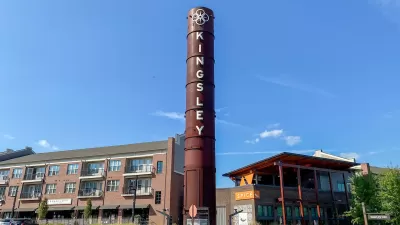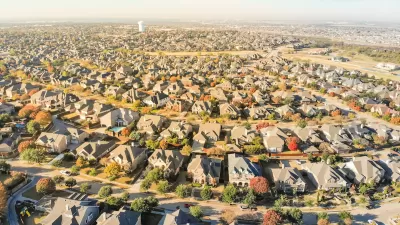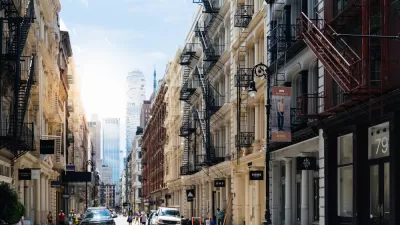What does it mean for cities and civic life when neighborhoods are viewed as products geared for individual consumption rather than ever-evolving communities?

“In August, the Vancouver Sun reported that a group of Douglas Park neighbors succeeded in convincing the city to reject a zoning variance application which would have allowed the expansion of a business near their homes. They felt this expansion threatened the tranquility and quality of life of their neighborhood,” writes Daniel Herriges in Strong Towns.
The offensive business in question? A new day care for up to eight children planned for the same building as an existing day care. Herriges doesn’t find this surprising, but writes that “the ordinariness nowadays of stories like this, in which residents of a place use legal and regulatory processes to aggressively litigate seemingly small-potatoes issues, does say something about today’s cities.”
Herriges refers to home-based businesses, reminding the reader that, for most of history, they were largely the norm. But as the pitch for suburban developments began relying on ‘peace and quiet’ as a premium amenity, “We’ve undergone a major cultural shift in the age of the Suburban Experiment toward ‘privacy and exclusivity’ as a dominant expectation of what one’s home should offer, even in cities.”
Not that quiet isn’t good, Herriges adds. But “What was different in the past was that you lived much of life within your neighborhood, so you acutely felt the trade-off between the advantages and disadvantages of living in a complete community.” In other words, “a certain amount of chaos and disruption in your environment was tolerable because the benefits were obvious.”
For Herriges, the proliferation of private cars changed this equation, making it easier for people to travel long distances and thus making them more willing to sacrifice nearby amenities for larger houses and yards. Yet the neighborhood in Vancouver where the day care would be located isn’t a suburb. It’s a highly walkable, urban neighborhood.
Herriges concludes, “I fear that the biggest obstacle to building stronger towns and neighborhoods, today, is a dominant culture that says that your neighborhood is no longer a project in community-building in which you are engaged alongside your neighbors.”
FULL STORY: Ixnay on the Ay-play

Planetizen Federal Action Tracker
A weekly monitor of how Trump’s orders and actions are impacting planners and planning in America.

Map: Where Senate Republicans Want to Sell Your Public Lands
For public land advocates, the Senate Republicans’ proposal to sell millions of acres of public land in the West is “the biggest fight of their careers.”

Restaurant Patios Were a Pandemic Win — Why Were They so Hard to Keep?
Social distancing requirements and changes in travel patterns prompted cities to pilot new uses for street and sidewalk space. Then it got complicated.

Platform Pilsner: Vancouver Transit Agency Releases... a Beer?
TransLink will receive a portion of every sale of the four-pack.

Toronto Weighs Cheaper Transit, Parking Hikes for Major Events
Special event rates would take effect during large festivals, sports games and concerts to ‘discourage driving, manage congestion and free up space for transit.”

Berlin to Consider Car-Free Zone Larger Than Manhattan
The area bound by the 22-mile Ringbahn would still allow 12 uses of a private automobile per year per person, and several other exemptions.
Urban Design for Planners 1: Software Tools
This six-course series explores essential urban design concepts using open source software and equips planners with the tools they need to participate fully in the urban design process.
Planning for Universal Design
Learn the tools for implementing Universal Design in planning regulations.
Heyer Gruel & Associates PA
JM Goldson LLC
Custer County Colorado
City of Camden Redevelopment Agency
City of Astoria
Transportation Research & Education Center (TREC) at Portland State University
Camden Redevelopment Agency
City of Claremont
Municipality of Princeton (NJ)





























